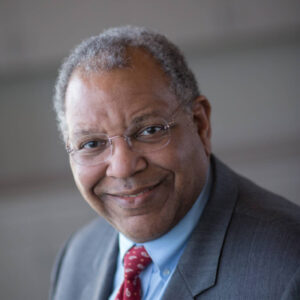In histories of oncology, Charles Gordon Zubrod is a name that flashes by quickly, someone who did something important a long time ago.
Most likely, a foggy recognition is triggered by the Zubrod performance score, which measures how a patient is doing, with the 0 score that stands for experiencing no symptoms, through progression of disease, to 5—death.
Alas, Zubrod doesn’t always get credit for the Zubrod scale. You may also have heard this easy-to-use scale—accepted pretty much universally—referred to as the ECOG scale and, with slight modifications, the WHO scale.
Doctors who cite the Zubrod scale are showing their age.
Zubrod is sometimes remembered as the organizer, enabler and pacifier who managed to shepherd an unruly bunch of NCI scientists—particularly Emil “Tom” Frei III and Emil Freireich—through a wild ride that demonstrated the efficacy of chemotherapy in the treatment of childhood acute leukemia, resulting in the first long-term remissions of this disease.
Oncology is a young field, and those who saw its beginnings will tell you that Zubrod was more than a masterful bureaucrat. He was a visionary. A panorama unfolded in his mind. Big scientific structures clicked in like puzzle pieces with big structures of policy, and—this is very important—religion.
On Oct. 1, 1954, when Zubrod reported to work at a place then known pejoratively as the National Mouse Cancer Institute, a new area of medicine was being created, and Zubrod was so strategically placed, so knowledgeable, and so skilled in the art of politics that his vision ended up being embedded in the foundations of cancer research.
Write down the names of giants upon whose shoulders modern oncology stands. Virchow, Coley, Halsted, Huggins, Watson and Crick are probably on your list; Zubrod probably isn’t.
He is unnoticed because his vision is foundational. Zubrod’s obituary in The Cancer Letter in 1999 included this list of accomplishments:
- He established the cancer clinical trials cooperative group system, beginning with the Acute Leukemia Group B, which was started with James Holland.
- He started a program to recruit clinical associates to NCI.
- He founded the NCI Leukemia Service and hired Frei and Freireich to run it and develop treatments for the disease.
- He developed quantitative methods that remain in use today in clinical trials and cancer treatment, including the phase I, II, and III system, endpoint measurements, the Zubrod scale, and flow sheets.
- He founded the NCI virus research program.
- He organized and defended NCI’s drug development program.
In a nutshell, Zubrod, a doctor educated at a time when the word “chemotherapy” denoted antibiotics, led an unruly bunch of much younger physicians to success in chemotherapy—leading to wide development and testing of chemotherapy, and increased public excitement about cancer research, resulting in substantial increases in federal funding for cancer research.
In a recent conversation, we challenged former NCI Director Richard Klausner to imagine cancer research without Zubrod.
Can you imagine it, Rick?
Klausner, who is not known for monosyllabic answers, responded with a pause and an elegant “No.”
If you wish to engage in the game of deconstructing history, pulling out threads and imagining what-ifs, try to pull out the thread called Charles Gordon Zubrod, and you will lose the initial successes in chemotherapy and the spirit of elation among scientists, philanthropists and politicians that resulted in the signing of the National Cancer Act of 1971.
No Zubrod, no path-breaking treatments, no National Cancer Act. To understand Charles Gordon Zubrod is to understand cancer history in a new way.














